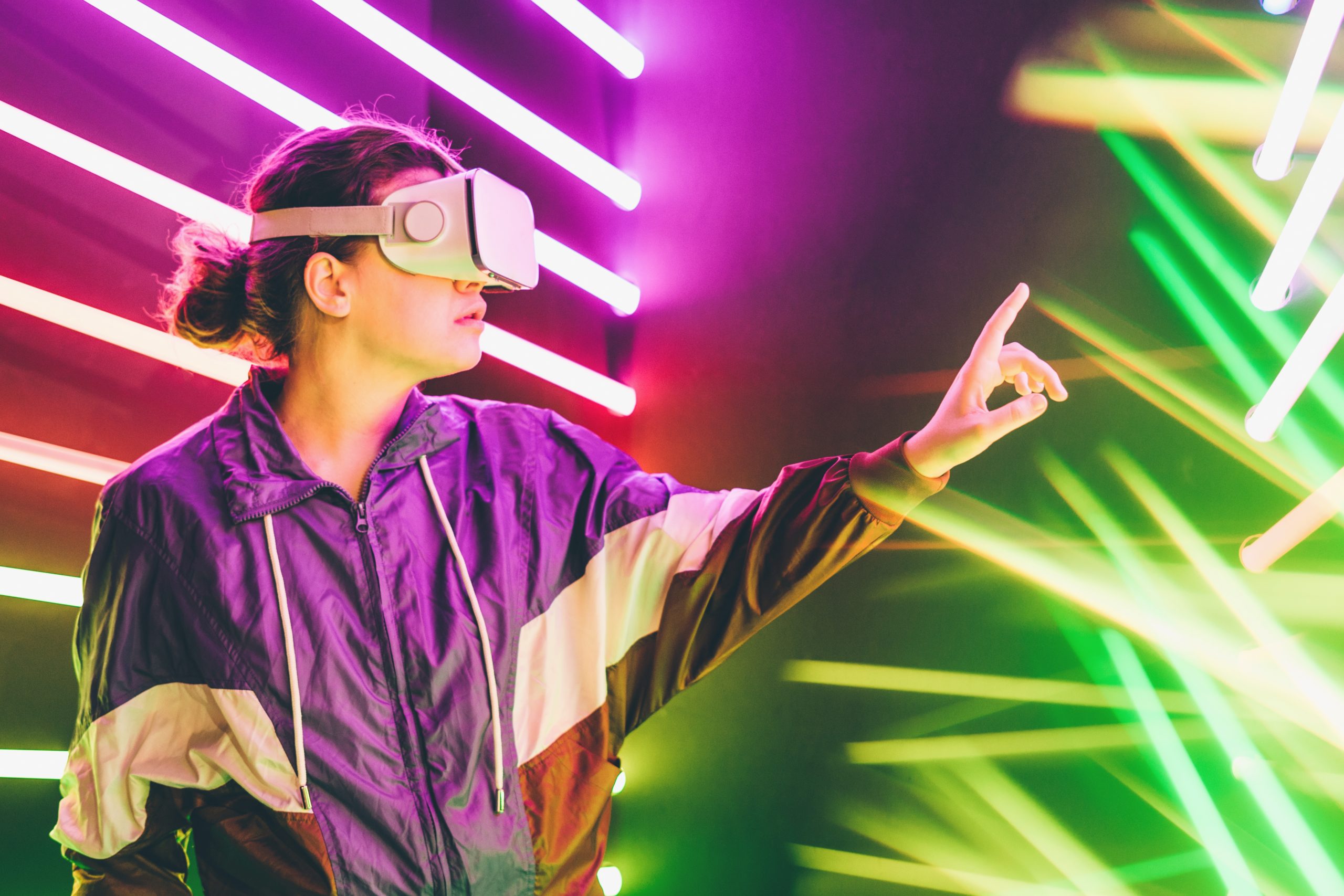
Digital Media
BA HONOURS
Offered as:
Full-time and Part-time
Entry in:
Summer, Fall and Winter
This program is offered collaboratively by AMPD and Lassonde
FIRST 18 MONTHS
YEARS TWO TO FOUR
OVERVIEW
Digital Media
As a Digital Media student, you will devise and use tools to create engaging, interactive digital objects and experiences that integrate imagery and sound, including effects and animation, 3D modelling and simulation, and responsive interfaces bridging the physical and virtual world.
You will also study larger concepts like aesthetic theories and the cultural impact of media as a catalyst for artistic, social and industrial evolution. Most importantly, you will learn to simulate, build and create.
You will begin the program by completing a common core of courses in first year. You will then select from one of three streams based on your interests.
Digital Media Development focusing on design of core tools and technologies for digital media practices.
Digital Media Arts focusing on the creation and application of digital media for creative production in the visual, performing and screen arts.
Digital Media Game Arts focusing on allied artistic and scientific aspects of innovative game design.
We offer courses in a range of subjects, for example, virtual reality user interfaces, graphics, games and animation.
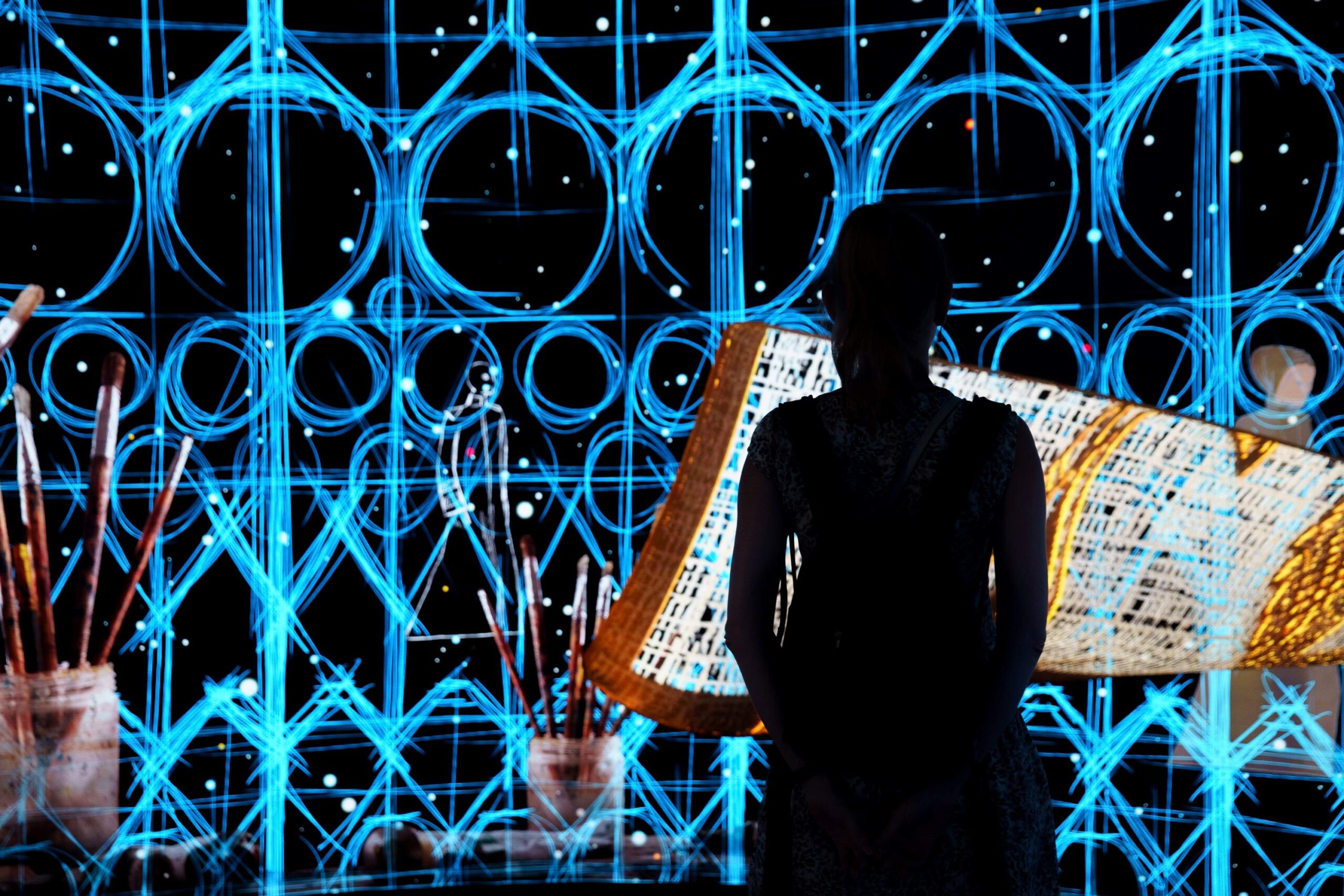
HIGHLIGHTS
Why Digital Media?
Ontario’s only degree program that integrates Art, Computer Science and Engineering
Gain in-demand software development skills for applications like 3D graphics, sound/music, games and mobile apps.
Unleash your creativity in cutting-edge research labs and state-of-the-art facilities.
Jumpstart your career with comprehensive portfolio development and internship opportunities
FIRST 18 MONTHS
The Common Core
In the first 18 months of the program, students in the Digital Media program complete a common core curriculum.
Media Signal Processing
Publishing in Digital Media
Net-Centric Computing
Programming for Digital Media
Introduction to Interactive Digital Media I & II

YEARS TWO TO FOUR
Your Choice Of Three Streams
During the second year students choose between three streams according to their interests and goals. The Digital Media Game Arts stream engages students in game theory, design and development in the cutting edge and future domains of game development and design, Digital Media Arts stream focuses strongly on digital arts creation and production where the use of computational systems and thinking is the primary mode of expression, and Digital Media Development is oriented to the more technical side of the field with a deeper dive into areas that cross into computer science, such as low-level computer graphics pipelines and game engine development. These streams represent pathways through the program with the intent of highlighting broad study areas. Each stream also provides students with options and opportunities for students to combine elements from other streams, as well as courses from across York University, to tailor their studies to fit their particular needs.
STREAM OPTION #1
Digital Media Game Arts
Combine your love of Game Design and Development with future forms and contexts for gaming.
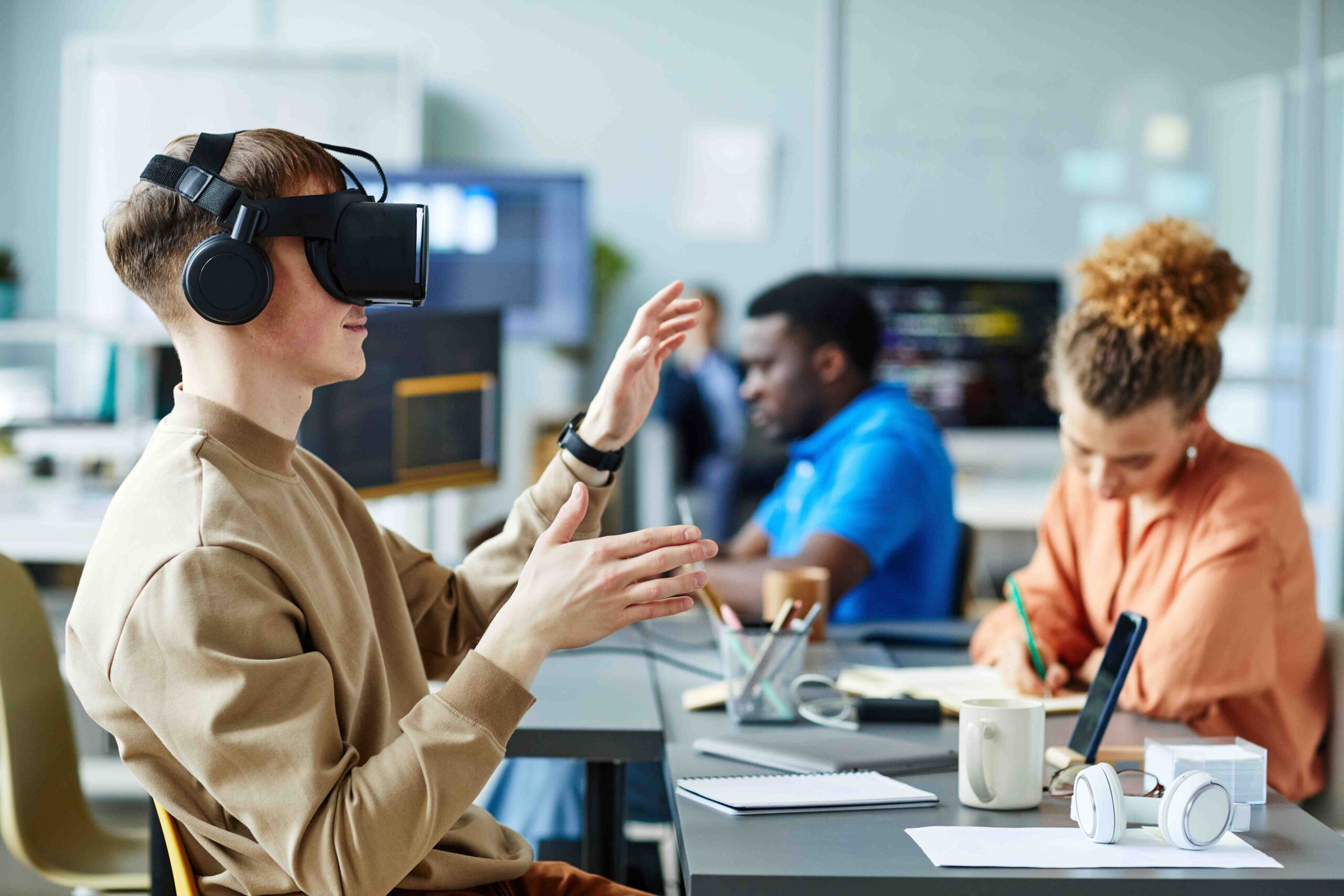
Game Mechanics
Introduction to 3D Modelling
Introduction to 3D Animation
Game History, Genre, and New Directions
Collaborative Project Development in Games
STREAM OPTION #2
Digital Media Arts
Are you interested in exploring technology as an expressive medium?
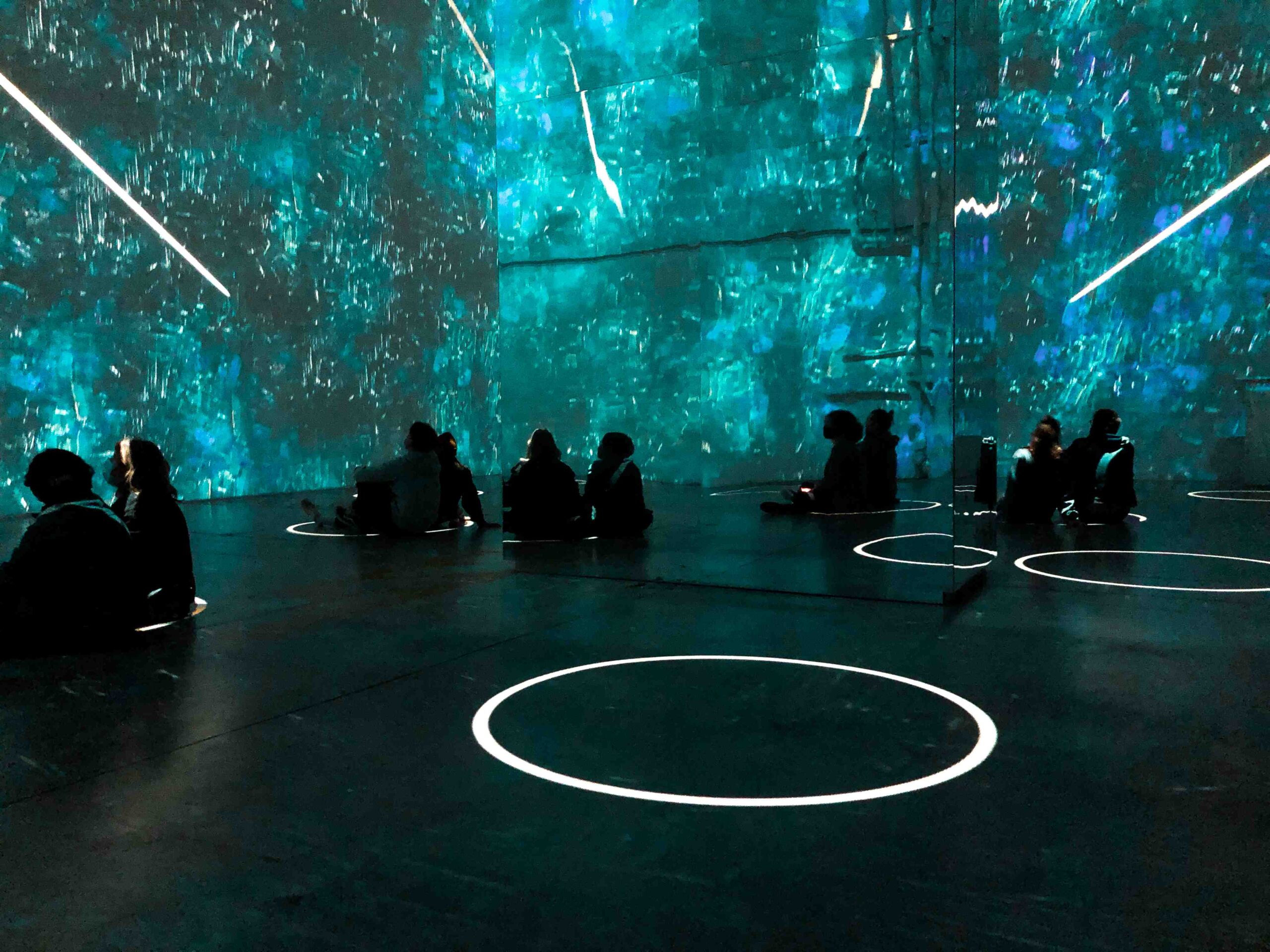
Digital Fabrication
Artificial Life, Generative Art and Creative Code
Creative Data Visualization
Electro-Acoustic Orchestra
The Interactive Stage
STREAM OPTION #3
Digital Media Development
Want to create the future of Digital Media with the most advanced tools and technologies?
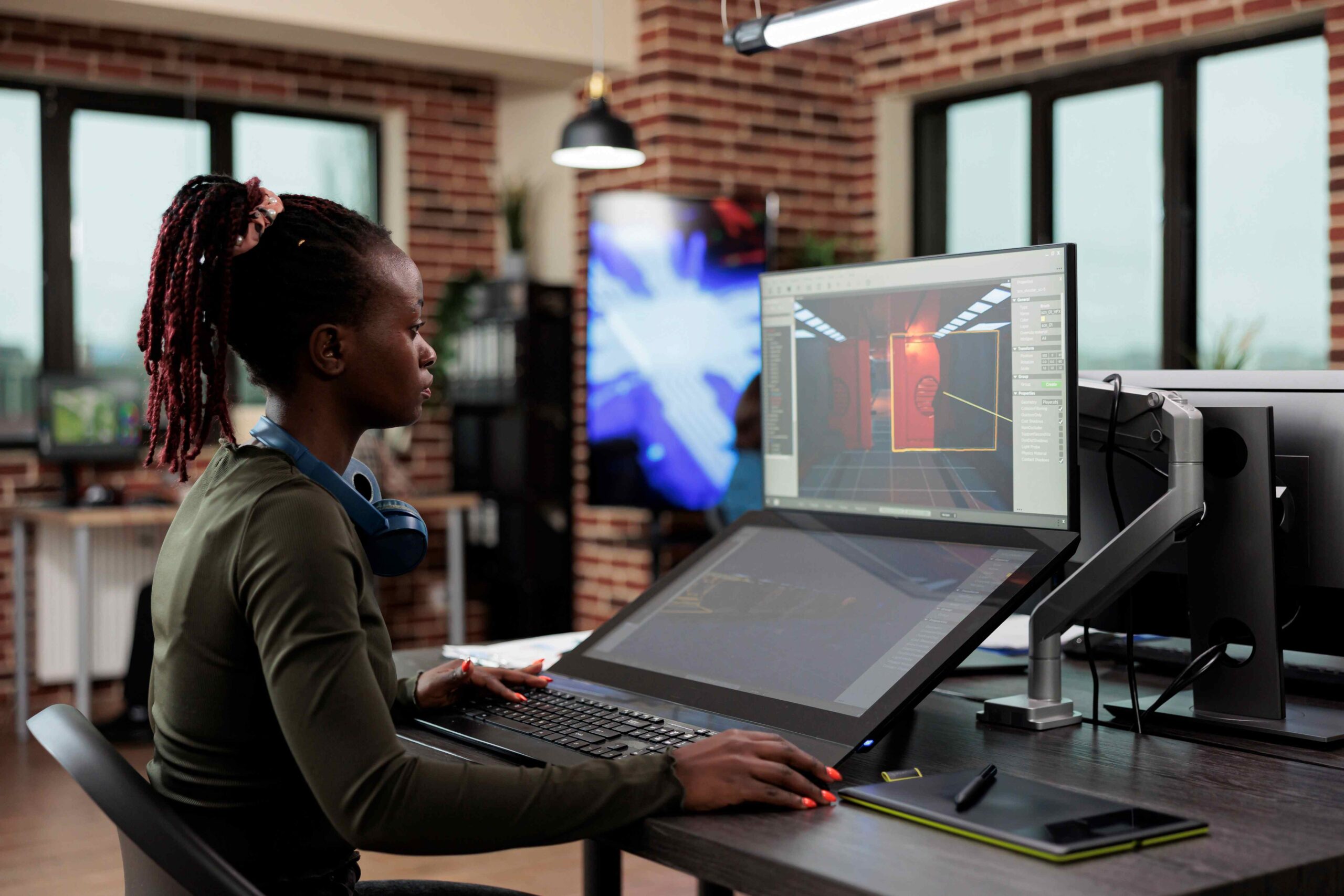
Digital Audio
Introduction to Virtual Reality
Simulation and animation for Computer Games
Advanced Topics in 3D Computer Graphics
Human-Computer Interaction
READY TO APPLY?
Admission
YEAR BY YEAR OVERVIEW
Learning Outcomes
Throughout the program students will:
- Develop a computational basis for the creation of digital media imagery and sound, using cutting-edge technology in the creation of games, new forms of art, and the simulation of 3D environments
- Explore the theoretical, artistic, aesthetic and experiential ideas that provide a comprehensive understanding of digital media creation
- Get hands-on experience creating digital media works and investigate the ways in which culture is, and can be, produced though technology
- Examine the broad socio-cultural effects of digital media, and contemporary theory and research the uses of, and response to, digital media
- Build a foundation of skills for the future, including new media literacy, design mindset, transdisciplinary, computational thinking, sensemaking, enterprise, resilience and human-machine collaboration.
Year 1
Gain the theoretical and practical background needed to succeed in the program and the future of the field.
Year 2
Specialize in one of the three streams:
- Digital Media Game Arts
- Digital Media Arts
- Digital Media Development
Year 3
Ambitious large-scale projects and team building.
- Work on large-scale projects with real-world clients and collaborators
- Learn role assignment, task management, multi-stakeholder engagement and project frameworks
Year 4
Refining your independent creative voice and professional practice.
- Develop self-directed, ambitious projects that explore cutting-edge topics in the domain of Digital Media
EXPLORE DIGITAL MEDIA COURSES
Digital Media Course Clusters
Courses in Digital Media are organized into six thematic clusters, providing students with flexibility of personal direction they can pursue in the program, regardless of the stream they choose. These clusters have been carefully curated so that students can build strong foundations in the area(s) that interest them most, building a trajectory to their future careers.
CORE
GAMES
MIXED REALITY
FABRICATION
INTERACTIVE & SONIC ARTS
Alex
'18 Digital Media
My Life at Lassonde
Passionate About:
Art in all its forms, math, coding, travel, books, food, people
My Lassonde Journey:
• My program combined the best of both worlds – art and logic – and I learned from inspiring profs and mentors
• VP Media & Design, Lassonde Engineering Society
• Design & deliver workshops for high school students
• Prototyping Lab mentor aka Sandbox Guru
• Hackathons
Life Beyond Lassonde:
• Junior Designer/Business Technology Analyst at Deloitte
• Stay connected to Lassonde by supporting hackathons & share my knowledge with young professionals
Connect with Us
Join a community of change makers. Join Lassonde.